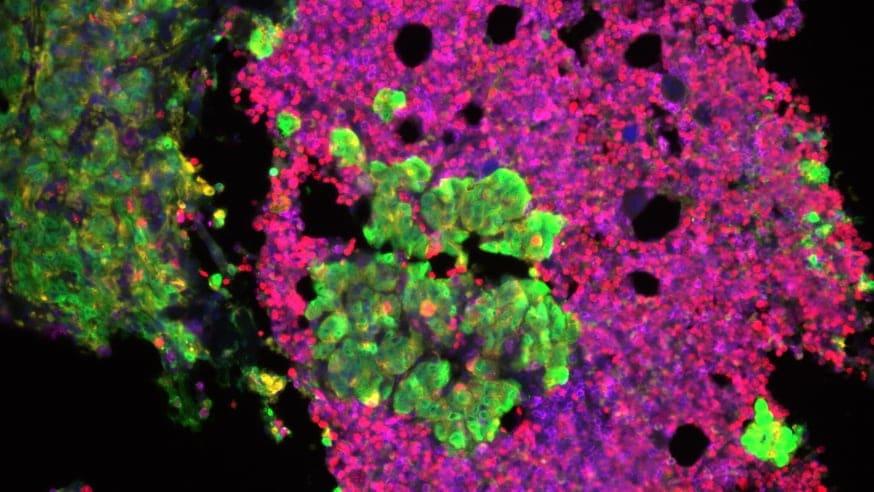KEY TAKEAWAYS
- The phase I and II trials aimed to characterize the safety, tolerability, and PK/PD profiles of 23ME-00610 in advanced solid tumor patients, with preliminary efficacy assessment.
- 23ME-00610 demonstrated favorable tolerability and a manageable safety profile, with observed irAEs consistent with immune modulation mediated by 23ME-00610. Phase 2a trial is ongoing.
23ME-00610, a pioneering anti-CD200R1 monoclonal antibody in Phase 2 clinical trials for advanced solid malignancies, has demonstrated efficacy in restoring T cell function in preclinical investigations. CD200R1, identified as an immuno-oncology (IO) target through the 23andMe database, exhibits pleiotropic causal variants with dual effects on cancer and immune disease risks. This unique IO signature involves three components within this pathway.
Drew W. Rasco and his research team aimed to report updated data from the completed dose escalation and pharmacokinetic/pharmacodynamic (PK/PD) cohorts within the ongoing Phase 1/2a study of 23ME-00610.
Eligible participants, aged ≥18 with histologically diagnosed locally advanced or metastatic carcinoma or sarcoma showing progression on standard therapies and having ECOG 0–1, underwent dose escalation using accelerated titration cohorts followed by a 3+3 design. A PK/PD cohort was included at the highest dose levels. Intravenous administration of 23ME-00610 occurred every 3 weeks (Q3W) until disease progression or unacceptable toxicity.
The primary objectives were to determine safety, tolerability, and determination of the maximum tolerated dose (MTD)/recommended phase 2 dose (RP2D), with MTD defined by dose-limiting toxicities (DLTs) within the first 21 days following cycle 1.
About 28 participants (14 male, 14 female; age range: 21–80 years) received at least one dose of 23ME-00610 across 7 dose levels (2mg to 1400mg; median [range]: 4 cycles [1–15]). No dose-limiting toxicities (DLTs) or treatment-related serious adverse events (TRSAEs) occurred, and the MTD was not reached. 68% of participants experienced at least one TRAE, primarily Grade 1 or 2.
Common TRAEs (≥2 participants) included nausea (14%), headache (11%), fatigue (11%), pruritus (11%), rash/maculo-papular rash (11%), arthralgia (11%), hypothyroidism (7%), and cough (7%). One Grade 3 TRAE (maculo-papular rash) led to treatment discontinuation. Among 27 evaluable patients, 52% showed stable disease (8 to 40 weeks), while one participant with pancreatic neuroendocrine cancer exhibited tumor shrinkage (19% reduction in target lesions) continuing at Week 40. Preliminary data indicate no emergence of anti-drug antibodies following repeated 23ME-00610 administration. Plasma cytokine analyses are ongoing.
The results demonstrated favorable tolerability and a manageable safety profile, with immune-related adverse events (irAEs) aligning with 23ME-00610-mediated immune modulation. The data reaffirm the assessment of 1400 mg 23ME-00610 every 3 weeks (RP2D) in the ongoing Phase 2a study. Research is sponsored by 23andMe, Inc.
Source: https://jitc.bmj.com/content/11/Suppl_1/A705
Clinical Trial: https://clinicaltrials.gov/study/NCT05199272
Rasco D, Abdul Razak A, Laurie SA, et al.(2023)’’First-in-class anti-CD200R1 antibody 23ME-00610 in patients with advanced solid malignancies: updated phase 1 results.’’ Presented at SITC 2023 (619).



